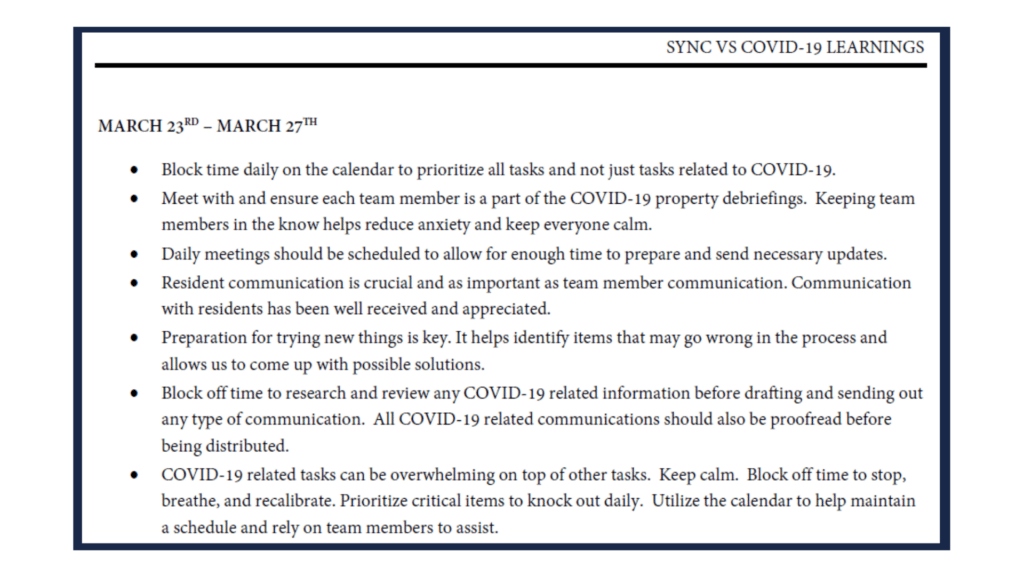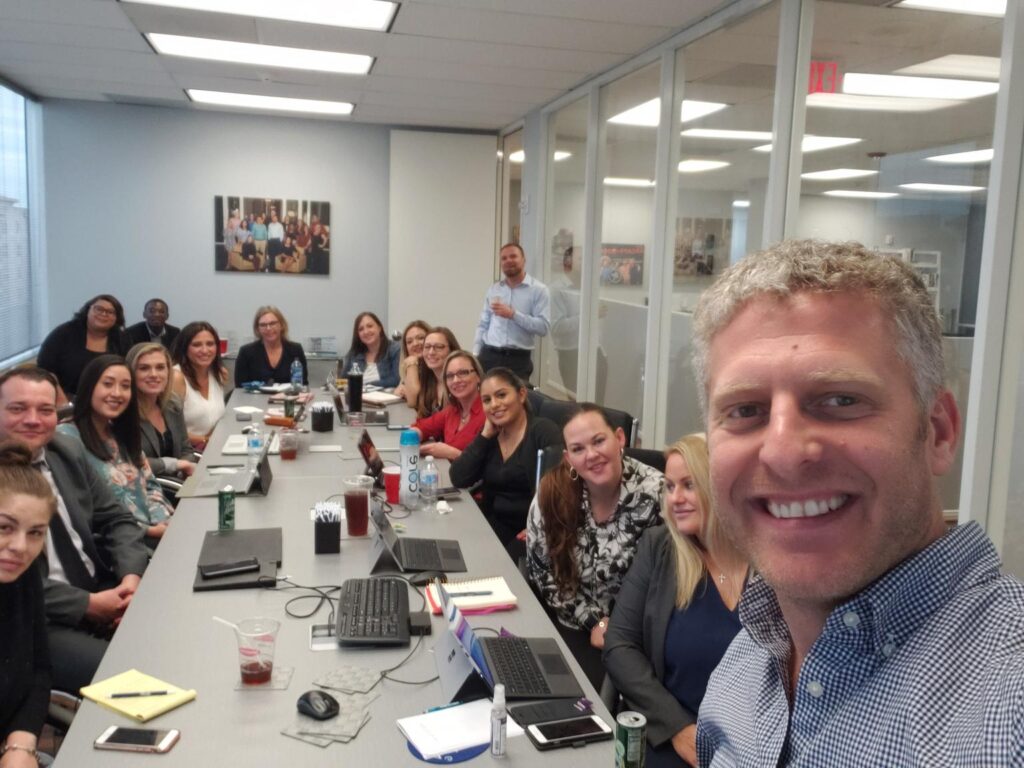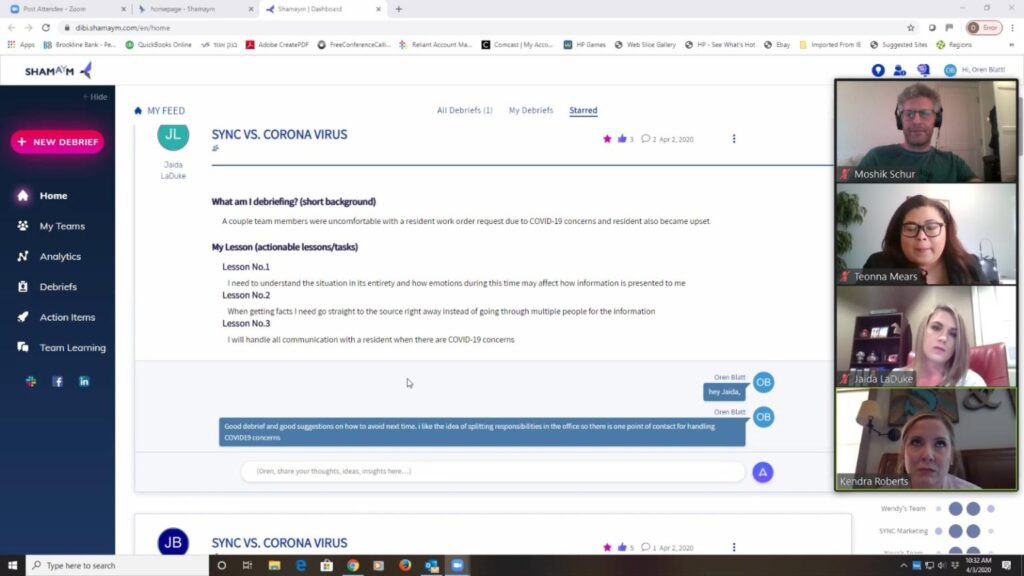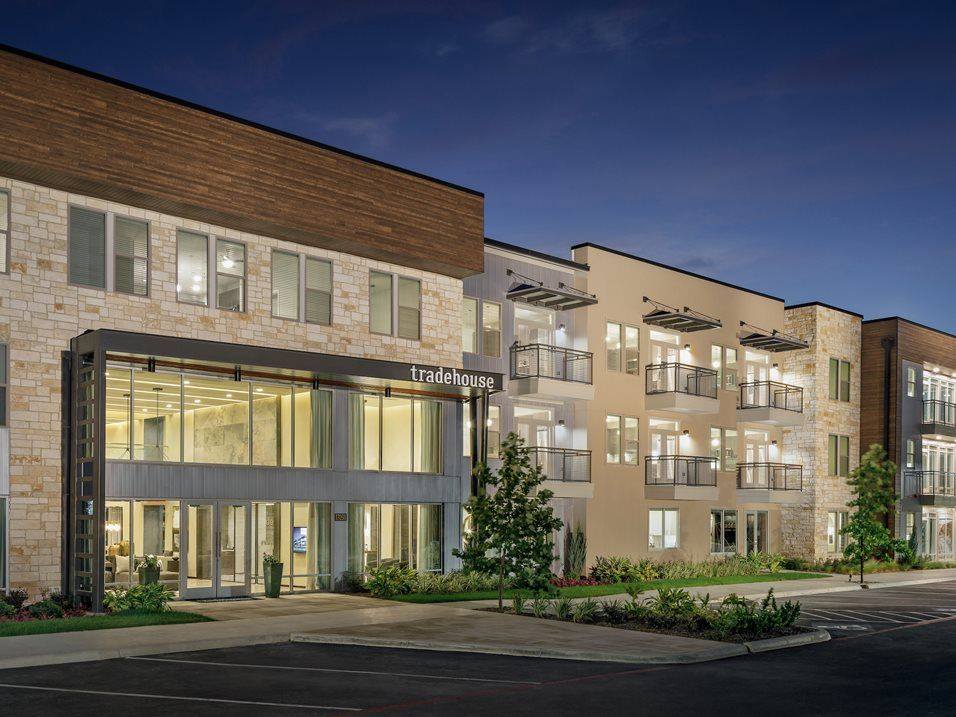Oren Blatt, CEO of SYNC Residential, shares the practices he’s put in place to build a crisis-ready culture in his remote team, and how they’ve proven helpful during the COVID-19 pandemic.
Our team had a (virtual) chat with Oren Blatt who runs SYNC Residential, a property development and management company based in Houston. With 5,200 apartments at seventeen rental properties in five cities across the U.S, Oren’s team is remote by design.
We wanted to speak with Oren because in his regular business operations he faces the quintessential challenge that many companies are experiencing now for the first time – effectively managing a team that doesn’t sit together. What steps is Oren taking to overcome the business challenges of the coronavirus pandemic, and how does he prepare his company for success in times of crisis?
Investing in Routines Creates a Framework for Smooth Operation in Crisis
Shamaym: The COVID-19 pandemic is understandably testing the resilience of all company cultures. What have you done to address this challenge at SYNC?
Oren: Last year we decided to undertake the process of building a continuous improvement-based high performance culture. We invested in the implementation of learning and improvement routines, and we’re seeing now that those routines are easing the company’s adjustment to the current crisis.
Shamaym: How does that look in practice?
Oren: Because routines were in place, we’re seeing that in the present crisis people are stepping up. Employees feel an unusually high level of stress and fear right now, but we’re using our routines as a framework to keep us connected – to be together within existing limitations. Ultimately, social interaction is good for people, so I’m finding ways to bring them together, even if virtually, for now.
Having a debriefing tool, and a daily meeting routine around it, enables us to adapt much faster to the present crisis, because we have both the structure and method to share knowledge and draw conclusions in real time. We created a team in the Shamaym Platform called “SYNC v. Coronavirus”, and asked people to write short lessons every day. This daily practice helps our team stay connected, and empowers us with practical tools for addressing issues that arise.

SYNC employees debrief daily about COVID-19 related lessons. The Shamaym Platform aggregates those lessons so they are immediately accessible to all employees.
Overcoming the Communication Challenge in Remote Teams
Shamaym: As an almost fully remote team, we imagine many of the challenges unique to the coronavirus work environment are not new to you. What would you say are the main challenges you face as a remote team during normal times?
Oren: I can identify three main challenges, all related to communication and knowledge sharing. The first is maintaining a structure to the workday with employees operating on different schedules, sometimes in different time zones. Secondly, sometimes my response times to changing circumstances are slower than I would like. I can define goals for the week, but two days later something [else] needs immediate attention. If the team is all in one place, you can gather everyone and make sure they know what’s going on. When you’re managing remotely, people miss things, sometimes you’re too late. Finally, I personally face a challenge communicating with non-direct reports. I speak daily with my regional managers, but rarely – if ever – with the employees who report to those managers. I miss opportunities to improve things, to understand unhappy employees and address their concerns.
Shamaym: How does SYNC Residential meet and overcome these obstacles?
Oren: The answer starts with giving your people the tools to build a transparent and supportive company culture. Across the organization – starting with my own executive team, we practice debriefing to create faster and more focused learning and improvement. Employees use the Shamaym Platform to record aspects of events that worked well, and those that should be done differently to change undesired outcomes. They share lessons, tagged by topic, with colleagues facing similar experiences at other properties.
When we started debriefing, I was nervous people would be worried to ‘expose’ themselves. But I got a lot of positive feedback. I see that in the comments [employees] give each other on debriefs – they share advice and [tips].

Shamaym’s VP Customer Success, Moshik Schur, conducting a (pre-COVID-19) kick-off session with the SYNC team.
Having this debriefing culture is even more beneficial when your team is remote. You can all go through the learning process together. Instead of letting each team solve problems on its own, teams can almost instantly draw ideas and lessons from other teams, so everyone improves more quickly.
Shamaym: How do you and your executive team colleagues model this behavior?
Oren: On our weekly company-wide video call, my team presents two of our own debriefs from the week before. Things come up that make us say ‘this is relevant for everyone’, and we update policies accordingly. We hold these calls even when there is nothing important to discuss because the schedule anchor contributes to team cohesion. But during the pandemic, our weekly calls have led to important lessons and policy changes that benefit the whole company.

The SYNC Residential team uses debriefing to maintain routines and stay connected during the COVID-19 pandemic.
Invest in Your Culture for a Lasting Business Impact
Shamaym: What impact do you think learning and improvement processes have on your organizational culture?
Oren: Implementation of these processes is critical in building a good culture. When employees see their managers sharing lessons, good or bad, and colleagues encourage and offer advice and suggestions, those employees feel their voice is heard ten times more than at any other company. When you send the message that it’s okay to voice problems and we will solve them together, people feel all in, like a family.
Beyond that, debriefing builds up organizational knowledge that not only fixes immediate problems, but creates a bank of lessons for use in future programs and in new employee onboarding. I want new employees to receive a summary of others’ lessons. When we hold an event at one of our properties, I want property managers to receive a sheet with lessons from previous events, things that went well and didn’t.
Ready to build learning and improvement routines that will elevate your culture?
Learn more on the basics and benefits of debriefing, and contact us for a demo of Shamaym’s continuous improvement platform.
